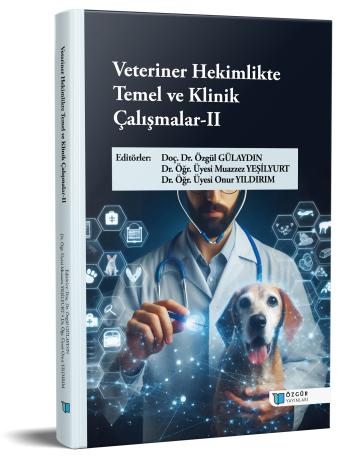
Some Trace Elements and Their Deficiencies in Ruminants
Chapter from the book:
Gülaydın,
Ö.
&
Yeşilyurt,
M.
&
Yıldırım,
O.
(eds.)
2025.
Basic and Clinical Studies in Veterinary Medicine-II.
Synopsis
This study concisely addresses the roles of various trace elements in ruminants, the causes of deficiency, clinical findings, pathogenesis, and treatment methods. Despite being present in very low amounts in living organisms, trace elements such as copper, zinc, iron, iodine, manganese, cobalt, and selenium are critical for maintaining basic metabolic functions and health. These elements participate in many processes, such as energy metabolism, immune response, growth, development, and reproduction, by contributing to the structure of enzymes. Their deficiency can lead to a wide variety of clinical presentations, including anemia, growth retardation, fertility disorders, skin and coat changes, neurological disorders, and a weakened immune system. The study details the metabolic functions of each element in the organism, particularly explaining specific disease patterns observed in ruminants (e.g., enzootic ataxia, parakeratosis, iron deficiency anemia, goiter, muscular dystrophy). It also covers treatment and prevention methods such as ration supplements, mineral salts, and parenteral applications. In conclusion, adequate intake of trace elements in ruminants is essential for animal health, productivity, and breeding. Therefore, maintaining mineral balance and preventing deficiencies in ration formulations for ruminants is of great importance.

